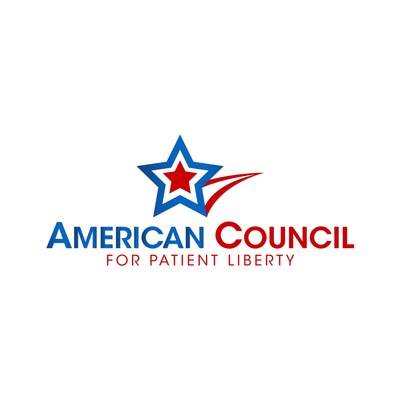The American Council for Patient Liberty created a website and produced an educational video to inform Arizonans and elected officials about voter protected medical marijuana as well as hemp extracts in Arizona.
|
PHOENIX, /PRNewswire/ -- The American Council for Patient Liberty created a website and produced an educational video to inform Arizonans and elected officials about voter protected medical marijuana as well as hemp extracts in Arizona. House Bill 2149 sponsored by Representative Tony Rivero (R) who represents Arizona's 21st legislative district encompassing Peoria and Sun City further establishes what voters wanted. "The [Medical] Marijuana Act supersedes the criminal code and I don't want it to be used as a tool to force patients who are fighting cancer and other diseases to have to smoke marijuana," as opposed to using extracts or concentrates, Rep. Rivero, said this past January. Different Arizona courts, including the Arizona Appeals Court have been grappling with how to interpret Marijuana versus Cannabis. Rivero's proposed law clarifies what some have said is causing significant confusion among Arizona Citizens, and more importantly, patients. In June 2018, the Arizona Division 1 Appeals Court ruled on a case called State v. Jones in a way that created a dubious legal situation for Arizona medical marijuana patients and dispensaries. Some media outlets interpreted the ruling to stop the lawful distribution or use of extract-based medicine because of the confusion in Arizona laws. This in spite of the fact that prior Supreme Court decisions related to Marijuana/Cannabis definitions essentially said Marijuana and Cannabis are one in the same. "My daughter's home health nursing agency abruptly discontinued services on the basis of our grey medical marijuana laws stating the potential illegality of concentrated cannabis, the form we most utilize when medicating my special needs, chronically ill teenager who is in palliative care," said Parisa Mansouri-Rad, Director at Women Grow Phoenix. The Arizona Public Health Association Director and former Director of the Arizona Department of Health Services Will Humble supports HB 2149 as it "synchronizes the definitions of marijuana and cannabis in the state criminal code and the Arizona Medical Marijuana Act," according to a blog post on the AzPHA site dated January 30, 2019. "This bill will alleviate our concerns over access to needed medicine and reduce the legal incomprehension which is now affecting my daughter's quality of life," Mansouri-Rad said. "To me and my daughter, this is not a political game being played by County Attorneys who are seeking to invalidate what voters have approved, -- it is life and death." The confusion over the cannabis definition is resulting in criminal charges and an uncertain future for cancer patients who are using medical marijuana extracts to cope with the side effects of their treatment. It also creates a criminal class for children with epilepsy alongside other vulnerable medical marijuana patient populations. In addition, the Arizona cannabis statute definition not only conflicts with Federal Hemp Laws (U.S. Farm Bill December 2018), but the recently passed Arizona Industrial Hemp Bill (SB 1098). In the 2018 Arizona Legislative session, the Industrial Hemp Bill sailed through both houses with a super-majority vote and was signed by Governor Ducey. The Arizona Dispensaries Association (ADA), Marijuana Industry Trade Association (MITA), Arizona NORML, and Women Grow Phoenix support HB 2149. View & share HB 2149 video on social media Steps to support HB 2149 on American Council for Patient Liberty website: Contact:
SOURCE American Council for Patient Liberty |





